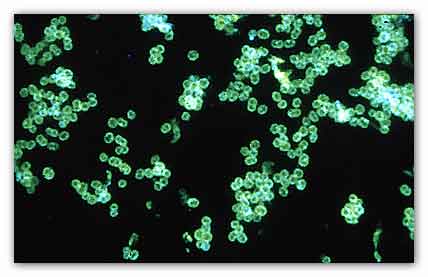|
Neisseria gonorrhoeae is a pathogenic bacterium that readily develops resistance to antibiotics such as sulfanilamides, penicillins, tetracyclines and fluoroquinolones. It has recently been reported that N. gonorrhoeae is becoming resistant to cephalosporins, which are the only treatment option recommended by the Centers for Disease Control and Prevention (CDC).
Today, new therapeutic methods other than antibiotics are in great need to treat these
infections.

Researchers from Boston University School of Medicine (BUSM) have for the first time identified a novel pathway that is necessary for infection to occur with the pathogen Neisseria gonorrhoeae, which is responsible for the second most common infectious disease worldwide,
gonorrhea.
According to the researchers, understanding the process of how N. gonorrhoeae causes disease in both men and women is essential for the design of new targets to block the infection. "The first step in the disease gonorrhea is the colonization of bacteria on human mucosal surfaces, such as the vaginal and penile mucosa," explained senior author Caroline Genco, PhD, professor of medicine and microbiology and director of research in infectious diseases at BUSM.
In this study, Genco and her colleagues identified a novel pathway that is critical for colonization of this bacterium on host mucosal surface. The key of this pathway is a single protein, designated as Fur, the ferric uptake regulatory protein, which controls the expression of hundreds of N. gonorrhoeae genes by either increasing or decreasing the expression of these
genes.
The study found that genes whose expression is increased by Fur may play a critical role in the prevention of disease development by triggering the host immune system to recognize and clear the bacterium.
The study, which was recently published online in the Journal of Bacteriology, may lead to new treatment methods for this sexually transmitted disease: "These pivotal studies provide new candidates that can be targeted for therapeutic intervention in this common sexually transmitted disease," Caroline Genco
added.
Source
Boston University Medical Center
(MDN)
|
![]()